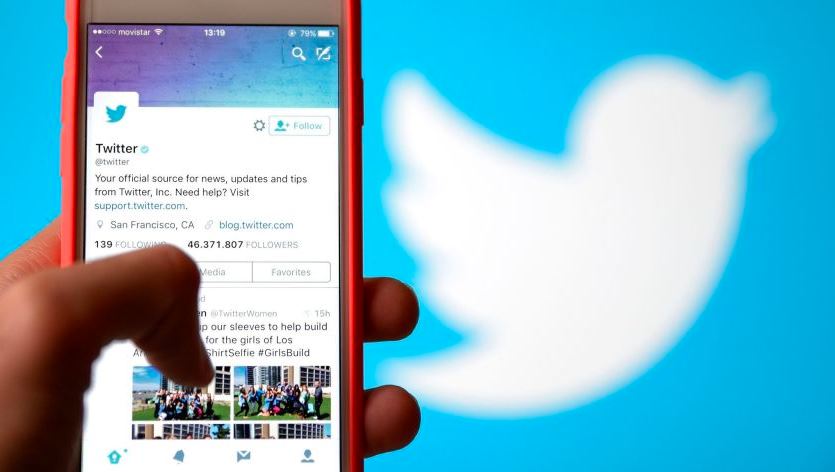India has been engulfed by the Covid-19 crisis like no other nation now. Oxygen is running out due to logistical issues in many hospitals, and delivery of oxygen tankers to medical institutes is happening at the end moment, especially in the national capital. Steps have been taken to overcome these hurdles, and the world community, barring the United States, is extending a helping hand to India to fight the Chinese pandemic. However, a disturbing trend has come to emerge on Indian social media especially on Twitter – one which involves fearmongering, hogging the limelight, engaging in PR stunts and spreading fake news. More importantly, people are also resorting to using ‘toolkits’ of sorts to paint a gloomy picture of India.
The government, frontline workers, medical staff and vaccine manufacturers are putting in their cent per cent effort to combat the Covid-19 pandemic. Ordinary Indians, however, must take it upon themselves to identify certain selfish, demented and motivated individuals on social media who have resorted to playing the role of fake good Samaritans, Covid-19 remedy prescribers, motivational speakers and the kind. India could right now use the help of genuine Samaritans, and not those looking to increase their follower count on Twitter by helping somebody in need.
As pointed out by TFI Media Group’s founder and CEO Atul Mishra, this is not the time for individuals to help Covid-19 patients and their families and then retweet messages of thanksgiving. A word of caution also needs to be extended to those people who are mindlessly retweeting every message/tweet calling for help, hours after it was first published. Thinking strategically at this crucial juncture is essential. If you see a tweet and have the means of extending help – do so quietly. Pressing on the retweet button is very easy, but it creates a panic wave across the nation. If you cannot directly help, contact someone you know who can, and do so privately. If you can do nothing, only then retweet the call for help, and undo as soon as help has reached the person/persons concerned. Also, try to ascertain whether the appeal is genuine in the first place, and not a mere copy-paste job.
I have seen angels who have helped patients, RTing every tweet thanking them. Not the right time to be a credit hog mate. Move on to the next one. Imagine surgeons blowing kisses at crowds after every surgery.
Panic is the biggest killer. More on it…
— Atul Kumar Mishra (@TheAtulMishra) April 22, 2021
A woman who was looking for Plasma donors and had her number circulated around was astonished to see men of all sorts sending her pictures of their private parts and engaging in non-consensual and suggestive conversations. This is just one of the many examples of why social media must be used judiciously, and why people must not mindlessly retweet every call of help days after help has reached the individuals concerned. Tweet admins will be well advised to delete their tweets after help has reached the person, or after the issue has been resolved.
I thought it wouldn't get worse, but since this morning, I've received (on whatsapp) 3 dick pics, and 7 men trying to video call me continuously. Even in a medical emergency, men think only with their genitals.
Women: NEVER, EVER let your number out in public forums. https://t.co/CAJJKiQmR6
— Shasvathi Siva (@shasvathi) April 16, 2021
Even during an unprecedented crisis, some social media warriors cannot help but resort to copy-pasting tweets and messages which their ideological and political bosses forward them. Multiple Twitter users, including Swati Maliwal, were caught red-handed recently when they put out the same tweet, saying that their ‘grandfather had passed away in front of Sharda Hospital, Greater Noida while waiting for emergency support’. One user, however, was kind enough to also tweet “Pls tweet this (after removing this line)” which exposed yet another quasi-toolkit mechanism to paint a doomsday picture of India.
This is absolutely disgusting propaganda! Sick to the core! Inhuman. pic.twitter.com/7uOX6y3T2q
— Vinayak (@vinayak_jain) April 23, 2021
Most recently, Twitter went berserk with the fake news of no less than AIIMS running out of medical oxygen supplies, which forced the authorities to not take in any new admissions. As it turns out, the oxygen never ran out, and the institute had only temporarily halted new admissions since the oxygen supply pipelines were being reorganised to handle the extra load which has been necessitated due to a surge in Covid-19 patients.
There's no shortage of #oxygen at AIIMS, the fake news gang is at it again. pic.twitter.com/UZBezGNAbn
— Vasudha (@WordsSlay) April 24, 2021
And then come the likes of Rana Ayyub, of course, who for a few dollars have shown an unparalleled ability to sell their souls. Such vultures are now resorting to earning money by calling India’s situation a ‘carnage’ and an ‘apocalyptic’ situation.
India is breathless. My latest for Time magazine on the devastation in India wrecked by the deadly second wave of Covid 19 and abetted by an insensitive, heartless government led by Narendra Modi #COVID19India https://t.co/gmZ49s9iSz
— Rana Ayyub (@RanaAyyub) April 23, 2021
"If the apocalypse had an image, it would be the hospitals of India," writes @RanaAyyub https://t.co/3ir4P0ZYt8
— TIME (@TIME) April 23, 2021
Social media, undoubtedly, is helping many individuals in need of grave assistance. Countless lives are being saved due to the activism of innumerable people on social media platforms. Yet, every Indian must remember to use social media judiciously, and in a manner in which nobody is fearmongered. We will get over this crisis, but for it to happen soon, the mood of panic in the nation must be eradicated, and those spreading fake news or using tragedies to earn either in financial or other terms, must be brought to book.
